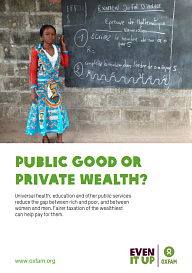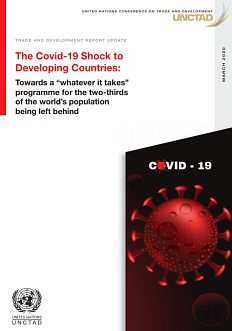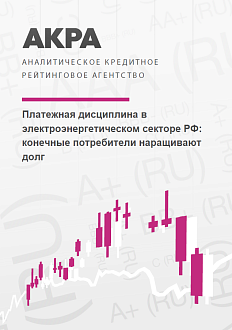This report was published by Oxfam International on the threshold of the World Economic Forum in Davos, Switzerland. According to the data collected by the authors of the report, billionaire fortunes increased by 12 percent last year or $2.5 billion a day while the 3.8 billion people who make up the poorest half of humanity saw their wealth decline by 11 percent. The report reveals that the number of billionaires has almost doubled since the financial crisis, with a new billionaire created every two days between 2017 and 2018, yet wealthy individuals and corporations are paying lower rates of tax than they have in decades. Just four cents in every dollar of tax revenue collected globally came from taxes on wealth in 2015. Also, tax revenues from taxes on wealth were growing at a slower rate than revenues from other types of taxes.
.png)
Women and girls are hardest hit by rising economic inequality. Girls are pulled out of school first when the money isnt available to pay fees, and women clock up hours of unpaid work looking after sick relatives when healthcare systems fail. Oxfam estimates that if all the unpaid care work carried out by women across the globe was done by a single company it would have an annual turnover of $10 trillion 43 times that of Apple, the worlds biggest company.
Oxfam insists that all governments should set concrete, timebound targets and action plans to reduce inequality as part of their commitments under Sustainable Development Goal (SDG) 10 on inequality. These plans should include action in the following three areas:
- Deliver universal free health care, education and other public services that also work for women and girls.
- Free up womens time by easing the millions of unpaid hours they spend every day caring for their families and homes.
- End the under-taxation of rich individuals and corporations.





